The Best Things to Eat When You Feel Bloated
Here are six foods and drinks that help you bring your belly back down to size.
By Jessica Migala
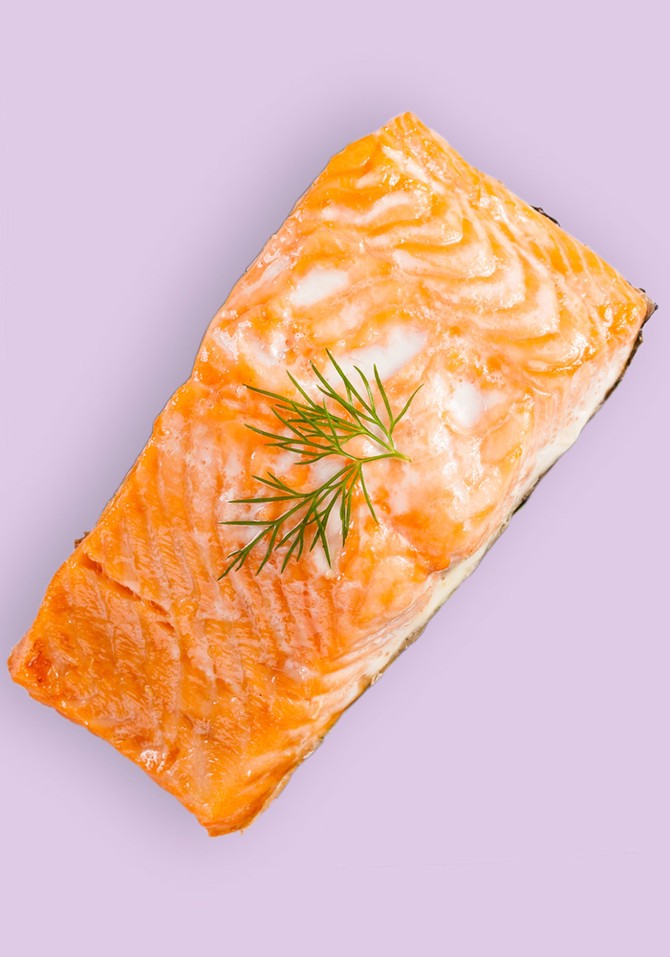
Photo: Jacek Chabraszewski/iStock/Thinkstock
Salmon
If you're dealing with two or three pounds of PMS water weight, choose salmon for your next meal. Women who took 2 grams of an omega-3 fatty acid supplement per day—about the amount found in a 3-ounce fillet—were significantly less bloated than those popping a placebo, reports a 2013 study in Complementary Therapies in Medicine. Bonus: The study also revealed omega-3s can boost PMS-associated mood problems. Feel good and happy.
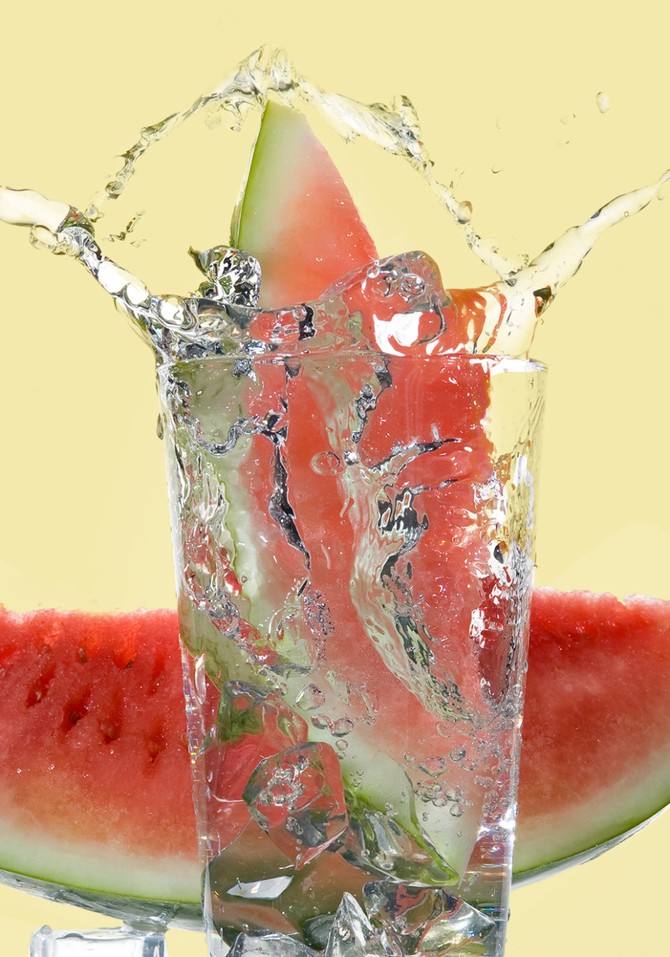
Photo: Jaroslav74/iStock/Thinkstock
Naturally Fruity Water
After dousing sushi in a little too much soy sauce, the excess salt can leave you swollen. "Hydrating will help you restore the fluid balance in your body to help you let go of extra water weight," says Samantha Heller, MS, RDN, a senior clinical nutritionist at NYU Langone Medical Center. If plain water sounds too boring, take a page from your local spa and add chunks of melon, such as watermelon and cantaloupe, to your glass. Then eat them—they're chock full of water. The two fruits are easily digestible, too, adds gastroenterologist Elizabeth Blaney, MD, clinical assistant professor at the University of Pittsburgh Medical Center. Just stay away from carbonated water, since the bubbles will add air to your belly and make the problem worse.
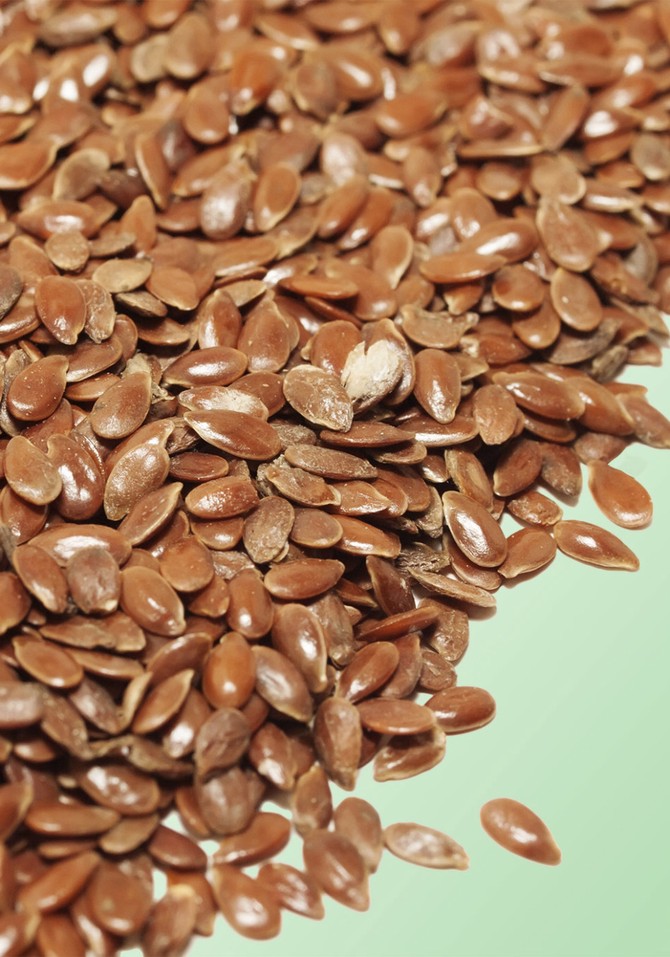
Photo: anakondasp/iStock/Thinkstock
Flaxseed
When your trips to the bathroom get less frequent, constipation may be to blame. But flaxseed can help act as a natural laxative to help you GI system work like it should. The tiny seeds are particularly good because they're rich in insoluble fiber. Research indicates they may be even better than psyllium husks (typically the go-to fiber supplement) for reducing bloating and pain. These fiber-rich seeds add bulk to your stool, making it easier for you to stay regular. Buy them ground and sprinkle a teaspoon in smoothies, on oatmeal and in yogurt. Chase with lots of water.
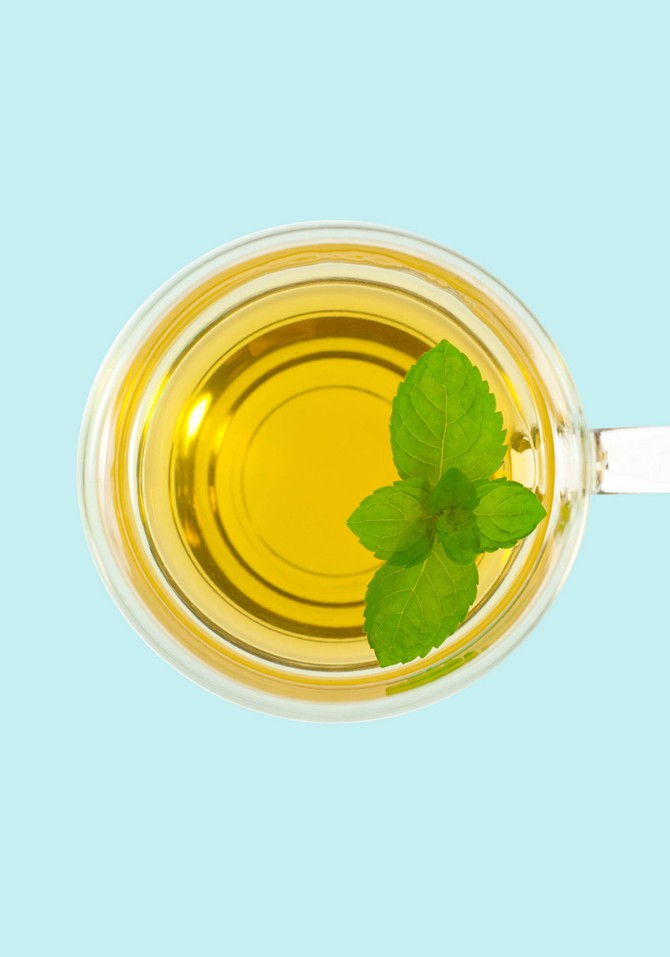
Photo: Zsolt Simonyi/iStock/Thinkstock
Peppermint Tea
Peppermint was all over the place in studies late last year, so let's start with something less familiar. The herbal brew "relaxes smooth muscles in the intestinal tract to ease discomfort and help your body release trapped gas in your colon," says Blaney. In fact, in a 2014 study on IBS patients, peppermint-oil capsules improved IBS symptoms and abdominal pain better than a placebo.
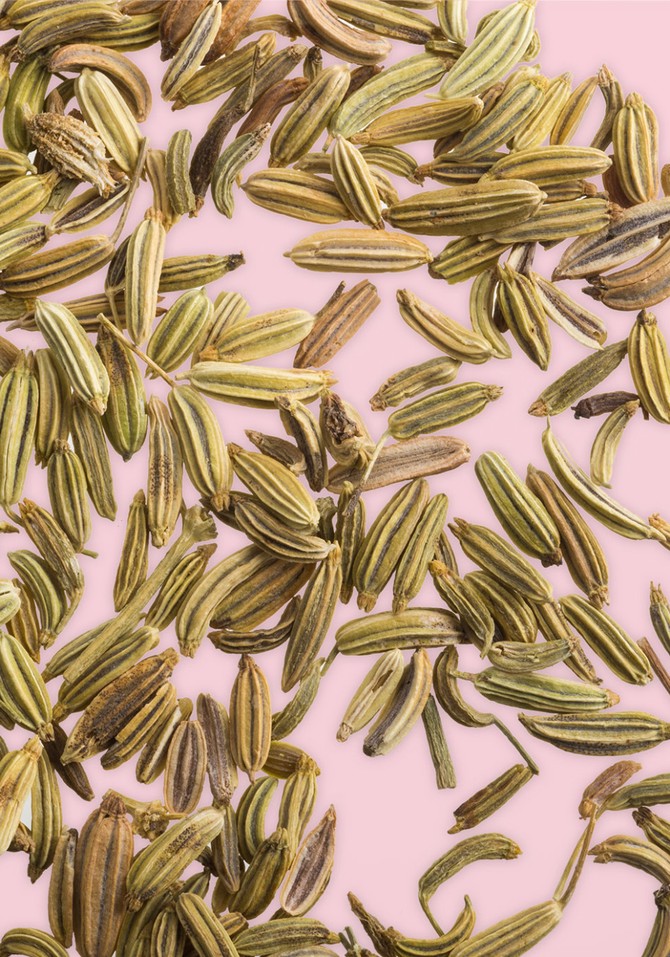
Photo: lucia_lucci/iStock/Thinkstock
Fennel
If you've ever eaten at an Indian restaurant, you know that many offer a small bowl of fennel seeds after the meal. Fennel has long been used as a digestive aid, says Heller. It may help increase digestive enzymes and help things move along your system to correct reflux, bloating and gas, suggests research published in the International Journal of Food Sciences and Nutrition. You can eat a few seeds if you like the taste, cook with them for your next meal or brew a cup of fennel tea.

Photo: Yelena Yemchuk/iStock/Thinkstock
Yogurt
If you feel as if you've blown up like a balloon, the culprit may be an imbalance of belly bacteria. "Research is showing that shifting your bacterial profile may be helpful," says Blaney, who sometimes recommends patients eat yogurt with live active cultures. Research in the Journal of Clinical Gastroenterology examined two specific strains of probiotics—lactobacillus acidophilus and bifidobacterium lactis—and found they lessened the severity of abdominal bloating compared with a placebo group within four weeks. Look for plain yogurt with active live cultures on the label (or sip kefir, a drinkable yogurt) and mix in your own fruit or honey for taste.
Published 03/18/2015

